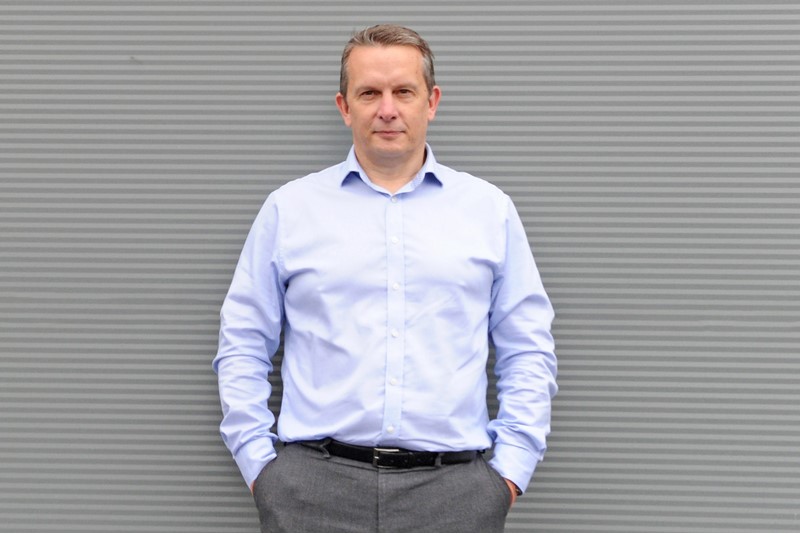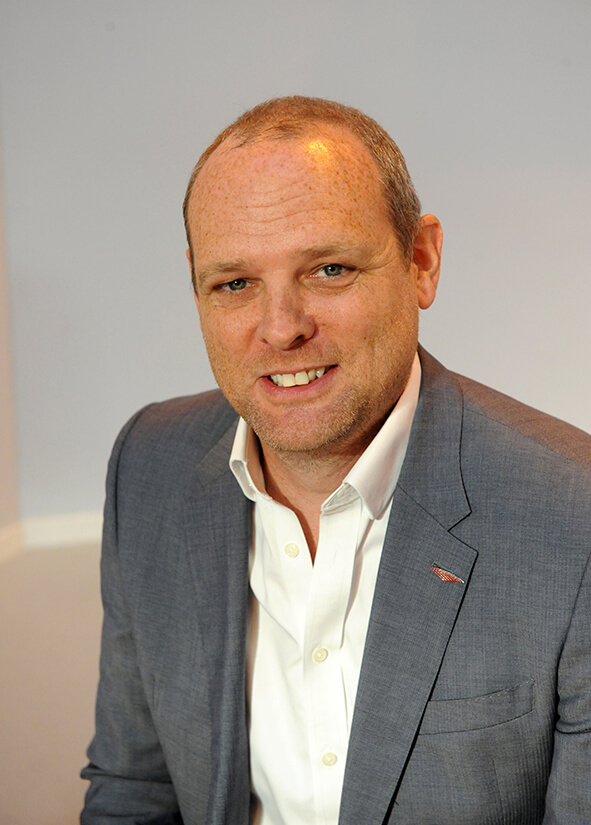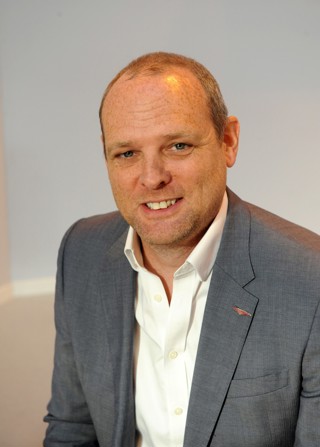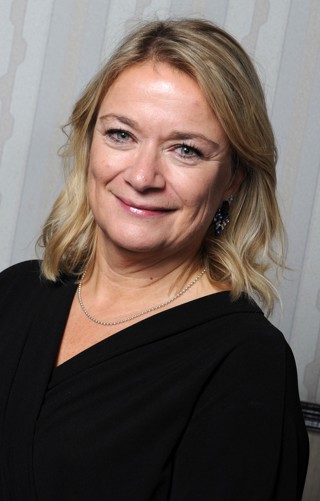The strength and potency of a trade association can typically be measured in two fundamental ways: size of membership and the willingness of members to engage in operational activities, such as joining committees that help to shape policy.
For the newly created Association of Fleet Professionals (AFP), the latter has been amply illustrated by the speed with which it has filled important positions on five new committees. Size of membership has previously been an Achilles heel, but progress is being made as more fleets join, while the ultimate aspiration is simple and ambitious: for every fleet in the UK to be a member.
AFP was formed in March from the merger of trade body ACFO (formerly Association of Car Fleet Operators) and training body ICFM (Institute of Car Fleet Management). The move was, in many ways, inevitable, but also a long time in the making.
As far back as 2010, the two organisations outlined plans to work together. Then, in 2016, came the statement announcing “closer links” which led to representation on each other’s boards and shared membership initiatives.
But it was to be another four years – and copious discussion – before a formal coming together was finally agreed. So why now?
“It took a meeting of minds,” says Paul Hollick, AFP chair (pictured).
“With Caroline (Sandall) taking on the role of (ACFO) chair and Stewart (Lightbody) (pictured below) coming in as deputy, there was real momentum to make this happen.”
Conversations had frequently been hampered by over-complication when “we just needed to make it happen”, Hollick adds.
“We said ‘let’s not worry about the detail’. Let’s create a simple structure with the top co as AFP rather than trying to do a full-on merge at the same time,” he says.
“So, we keep ICFM as an operating association, but, in the medium term, turn it into the Fleet Academy for the AFP. This meant we could bring it together at speed.”

AFP co-chair Sandall has since stepped away from the association for personal reasons leaving Hollick as sole chair, aided by deputy Stewart Lightbody (pictured) and 11 other board members. There is an additional sub-board for ICFM which focuses purely on education and training.
Lightbody was one of the main catalysts. Co-opted onto the ACFO board at the end of 2018, he made it clear from the outset that he wanted the two organisations to be one.
“I put a lot of my success down to the ICFM, so I couldn’t understand why it hadn’t been done before,” Lightbody says. “We use the phrase both sides of the same coin and there is more vested interest than ever.”
AFP Fleet Academy
For now, members can join AFP or opt only for ICFM, but, ultimately, there will be just one membership as ICFM is rebranded as AFP Fleet Academy. The board still needs to iron out these details – as well as articles of association and memorandum – and might retain the MICFM (member) and FICFM (fellow) lettering.
Lightbody adds: “We didn’t want to drop the brand too quick; it’s a badge I wear with honour.”
Hollick is mindful that some ICFM students pay for training out of their own pocket – Lightbody, himself, was one – so AFP is likely to introduce a student tariff of £70 to encourage “new blood to join the industry”.
In the coming weeks, ICFM members will receive an invitation to join AFP with corporate fees set at £299 a year. Supplier packages also start at £299 (bronze), rising to £2,000 (platinum).
The merger will see membership numbers exceed 900 – almost 700 from ICFM and just less than 300 from ACFO – of which 60% are fleet decision-makers and 40% service providers. The overlap between the two membership bases was less than 20% thanks to different demographics.
ICFM consisted of the “new guards coming through the ranks”, the newcomers, junior staff and those with a handful of years’ fleet experience, while ACFO had the senior decision-makers, the stalwarts with 10 years-plus knowledge.
“The tie-up bringing both sets together has been pretty awesome and we are already seeing some of the senior guys starting to think about putting their own team through training because they are aware of how it all links together,” says Hollick.
“That will help our drive to make this industry a proper vocation and also to give fleet operators a voice in the marketplace.”
Hollick’s original aspiration for AFP core membership – “fleet decision-makers, our DNA” – was to hit 1,000 “because it starts to feel like a proper movement” (it will stand at more than 500 if all members are retained during the amalgamation). However, he now believes AFP could exceed 1,500 in the medium term due to an “untapped opportunity”.
“I’m meeting people that weren’t aware of ACFO or the ICFM,” he says. “Since we started the call to arms about the committees, there have been people in FORS or FTA that haven’t been aware of our existence, which I find a bit mind blowing; they just don’t know the industry holistically.”
Beyond the core, AFP is keen to attract more members from procurement and travel, which also opens up mobility management.
Lightbody adds: “While 1,500 sounds achievable, for me it’s about making sure we have the right people from the right organisations that are in it for the right reasons and want to play their part.”
Learning, sharing ideas and best practice
Ultimately, for both Hollick and Lightbody, it is less about setting fixed targets and more about a mindset of wanting “every fleet operator in the country being a member”, but within a principal goal of offering value through learning, sharing ideas and best practice.
“If our membership is gaining insight and the support they need in getting their questions answered that they can’t get elsewhere, then we’ve succeeded,” Lightbody says.
He recognises that some sections of ACFO membership became “frustrated” that the association didn’t fully deliver on their expectations and the new AFP would have to “show that we are doing things differently” to re-engage them.
The committees are a crucial part of this strategy (see panel, right) and they are already providing a fillip to membership, bringing in many first-time members.
“We are pushing at an open door – there’s a real desire to be part of this,” says Hollick. “Lobbying is hugely important, making sure we are representative holistically all of their needs. That’s why we set up the committees, but out of them also needs to come best practice advice for other members. Thought leadership is really important.”
The Light Commercial Vehicle (LCV) committee is a real nascent moment for AFP. LCV fleets are embracing the fact they finally have something dedicated to them. LCV remains, according to Hollick, a gap in the market, despite previous attempts by both ACFO and FTA to engage.
“It’s been really encouraging, and they see us as a complimentary body beyond FTA and FORS – it’s not about competing with those guys,” he says.
Lightbody adds: “Although ACFO was inclusive, I think just in the title (Car Fleet Operators), a lot of LCV operators thought it wasn’t for them. Now, with the neutral position of AFP, they feel like they’ve got more of an opportunity to contribute.
“And a lot of those operators run both car and vans, so we can have a single voice for both.”
This single voice will be important when it comes to representing fleets within Government. ACFO tended to rely on forming bonds with other trade bodies, including FTA and BVRLA, when lobbying, although it did enjoy solo success, notably with its campaign for the electric vehicle advisory fuel rate in 2018.
Will AFP have the strength and weight of voice to go it alone if and when necessary?
“When there’s no conflict between us and the BVRLA in terms of what we want to achieve, we will throw our hat in the ring and join up,” says Hollick. “We should stand shoulder-to-shoulder with them over core activities that mutually benefit both bodies. But, with the creation of the new organisation, we are our own people as well and we do have our own links into Treasury, into Whitehall and into local government, so we will represent ourselves in the right way even if it causes conflict with others, because we have to be properly independent.”
Lightbody adds: “There was always perceived to be a ‘them and us’ between BVRLA and ACFO, although I don’t think that was ever intentional, and in certain areas we should be representing both sides of the argument collectively otherwise we just waste everyone’s time. But, we are not afraid to stand on our own two feet – we prefer side-by-side, but we could go toe-to-toe.”
ACFO has been part of the global fleet community since 2017 when it helped to establish the Global Fleet Consortium Network as part of its “thinking internationally” outlook. Last year, it joined Fleet and Mobility Management Federation Europe (FMMFE).
With a growing number of UK fleet managers taking on pan-European or global fleet responsibilities, having a high level of insight into the challenges that impact different markets at different times enables the association and its members to stay ahead of global trends.
International fleet training programme
In addition, AFP is working with FMMFE to jointly create an international fleet training programme where, for example, a German fleet manager with UK fleet responsibility can go on an ICFM course to learn about the fleet minutiae in the UK, and vice versa for a UK fleet manager with German responsibilities.
AFP is also benefiting from shared learning with its American counterparts, where training is MBA-based, enabling it to deploy best practice.
“It will probably be next year when we see some of this thought leadership coming through,” says Hollick.
As the former deputy chair of ACFO, Lightbody is perfectly placed to pass comment on the contrasting nature with the new AFP. And he returns to the structure of the committees which can play a vital role in supporting the main board.
“It feels very different from the old ACFO set-up in that it isn’t just down to the board to fix the issues,” he says. “There is a collective responsibility among like-minded operators out there to become involved and help spread the load.
“It also becomes a natural breeding ground for board members in the future as well. So, we don’t become stale and predictable; we have succession planning from active and engaged committee members.”
The Association of Fleet Professionals has carefully set out its intentions: it wants to offer fleet operators a strong voice with national and local government policymakers and share best practice and solutions with its members.
So, what do Hollick and Lightbody believe will be the measures of success for the integrated organisation when they look back in years to come?
“Every fleet operator is a member of the AFP and everyone knows about it,” shoots back Hollick without hesitation.
He adds: “Also, if we’ve managed to make a couple of good changes to the marketplace with central and local government to improve the way companies operate fleets. But it’s about talent generation as well. We want to make sure we create a sustainable industry for ourselves and the new talent coming through the training courses.”
And Lightbody? “Our industry is changing all the time; technology is changing all the time and our future success is dependent on us embracing the new people coming through who are not afraid to challenge convention or to try something different.”
Back to Hollick for the final word: “This phase for us is a real call to arms to the industry. Fleet operators need to get involved with this; it’s not just the responsibility of the AFP board members. We’ve got a real opportunity to be able to improve the vocation of fleet operators in the UK market – and now’s the time.”
Fab five – AFP’s new committees ring the changes
The five committees announced by AFP in mid-June have an important role to play in shaping policy and positioning with Government and local authority policymakers, but also in deriving best practice to share across the membership.
The topics clearly struck a chord with fleets; within two weeks, the 12 available places were filling fast with one of the committees – EV/alternative fuels – already full. The ideal mix is eight fleets, each of which is representative of their industry sector, and four suppliers.
“It’s not been difficult to get people involved; no one has said they aren’t interested,” says Stewart Lightbody, who chairs two of the committees – EV/alternative fuel and LCVs. “None of them can wait.”
Paul Hollick adds: “We’ve had people phoning us up asking how they can get involved. We could’ve filled some of them three times over, especially the EV and LCV committees.”
The five full committees and fleet members to date are:
EV/alternative fuels: Steve Cuddy, Close Brothers; Ken Needham, Foxtons; Lorna McAtear, National Grid; Simon King, Mitie; Dale Eynon, Defra; Eric Bristow, Schindler; Denise Lane, Capita; Duncan Webb, Royal Mail
Light Commercial Vehicles: Steve Winter, Centrica; Cliff Lewis Interserve; Matt Hammond, Altrad; Steve Openshaw, Eric Wright; Denise Lane, Capita; Duncan Webb, Royal Mail; Jo Hammonds, Sanctuary; Lee Rossall, BES Utilities; Glenn Ewen, Clear Channel
Future Roads: Debbie Floyde, Bauer; Nigel Grainger, Plumbase; Colin Jones, Cancer Research; Colin Hutt, Clarion
Risk, compliance & health: Marie Jarrold, BCA; Colin Knight, Amazon; Tony Murphy, Murphy Plant; Ted Sakyi, Euro Car Parts; Matt Hammond, Altrad; Eric Bristow, Schindler; Ryan Coles, Aviva
Future Mobility: Wayne Warburton, Siemens; David Oliver, Specsavers; Mandi Nicol, Schneider Electric; Lorna McAtear, National Grid; Andy Leedham, Astra Zenica; Debbie Floyde, Bauer; Joe Carierra, MSD
AFP also has an additional committee run by the board: Government Bodies and Trade Associations.























Login to comment
Comments
No comments have been made yet.